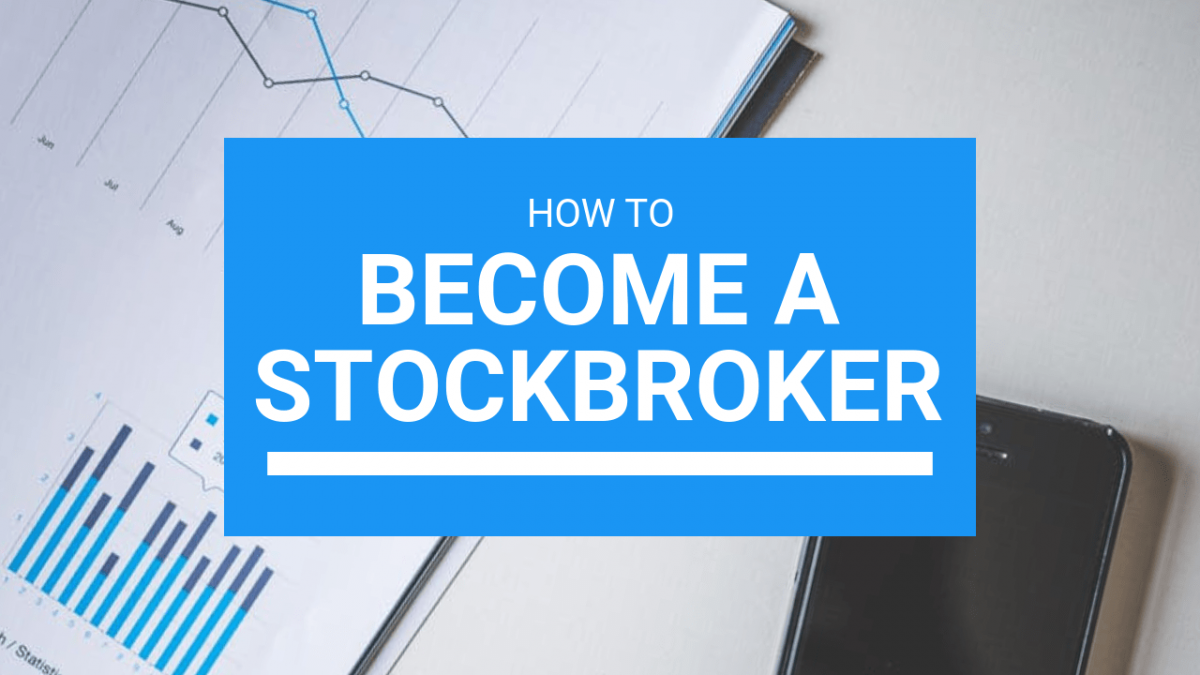To understand how to become a stock broker, start by obtaining a bachelor’s degree in finance, economics, or business. Gain practical experience through internships or entry-level roles while preparing for regulatory exams required for licensure. Pursue additional certifications like the Chartered Financial Analyst (CFA) to enhance your expertise and credibility in the field. This guide will show you how to become a software developer, the qualifications needed, and the essential skills for success.
What Are the Main Types of Stock Brokers?
Stock brokers facilitate the buying and selling of shares (stocks) and other securities on behalf of clients. There are different types of brokers based on the roles and services they provide:
- Full-Service Broker: A broker who offers a full range of services, including investment advice, portfolio management, and financial planning, typically for a higher fee than a discount broker.
- Discount Broker: A brokerage that provides standard trading services without additional financial advice or portfolio management services. The lowest-cost brokers can be discount brokers, which are popular with self-directed investors.
- Online Broker: This broker operates primarily online and usually allows clients to buy securities with little or no human interaction. Such brokers have very low fees and are best suited for experienced investors.
- Institutional Broker: A broker that works with large clients, such as companies, pension funds, and hedge funds, handling large transactions and complex investment strategies. Institutional brokers focus on high-value clients.
- Commodity Broker: This broker specialises in trading hard commodities such as petroleum, gold, or agriculture, and regularly trades with investors interested in physical commodities or their derivatives.
- Forex Broker: Offers a gateway to foreign exchange markets based on pairs of currencies. Forex brokers provide a connection to these markets, facilitating trading between currencies. They serve individuals wishing to trade foreign currencies and companies needing to conduct foreign currency transactions.
- Real Estate Investment Broker: Specialises in working with real estate investment trusts (REITs) and real estate securities, assisting clients in purchasing real estate assets through the stock market.
Many different types of stock brokers exist, each with distinct roles. Deciding which path to take depends on your interests and capabilities.
What Does a Stock Broker Do?
Stock brokers manage their clients’ accounts, buying and selling stocks on their behalf, providing advice, and helping them achieve their financial goals.
Here’s a brief overview of the main responsibilities of a stock broker:

- Investment Advice for Clients: Brokers provide personalised advice on investment opportunities tailored to each client’s goals. They assess risk tolerance and financial situations to recommend suitable securities. This guidance helps clients build diversified portfolios. Their aim is to align investments with clients’ long-term objectives.
- Trades: Brokers execute buy and sell orders on behalf of clients, covering a range of assets including stocks and bonds. They ensure timely and accurate execution of trades in various markets. This process is crucial for capitalising on market opportunities. Their expertise helps clients navigate complex trading environments.
- Analyse Market Trends: Brokers analyse market trends using financial data, economic indicators, and stock performance metrics. This analysis helps them make informed investment recommendations. Continuous monitoring of market conditions is essential for accuracy. Their insights assist clients in making strategic investment decisions.
- Developing and Maintaining Client Portfolios: Brokers create and manage investment portfolios to diversify assets and balance risk. They aim to maximise returns while staying aligned with the client’s investment goals. Regular reviews and adjustments ensure the portfolio remains effective. This proactive management helps clients achieve financial success.
- Financial Education: Brokers educate clients on investment strategies, financial markets, and risk management. They aim to enhance clients’ understanding of financial concepts. This knowledge empowers clients to make informed decisions. Their guidance helps clients navigate their investment journeys confidently.
- Managing Client Relationships: Brokers foster strong relationships with clients through regular updates and communication. They address questions and concerns promptly, ensuring client satisfaction. Building trust is crucial for long-term partnerships. Responsive brokers are valued for their commitment to client needs.
- Regulation: Brokers must adhere to industry regulations to maintain transparency and fairness in all trades. Compliance with rules set by regulatory bodies like the Financial Conduct Authority (FCA) is essential. This oversight protects both clients and the integrity of the market. Brokers prioritise ethical practices in their operations.
Stock brokers play a crucial role in advising clients, helping them navigate the complexities of financial markets, and, most importantly, making trades on behalf of investors to achieve their investment objectives.
Average Stock Broker Salary
The salary of a stockbroker depends on experience, workplace, and the type of clients they cater to. The following information illustrates their earnings in the country:
- Entry-Level Stock Brokers: Newly qualified brokers earn between £25,000 and £40,000 per year. Entry-level roles provide basic training in executing trades and managing a client portfolio.
- Mid-Level Stock Brokers: With five to ten years’ experience, brokers can earn around £40,000 to £75,000. Mid-level brokers typically have a larger client base and can offer more complex investment advice.
- Senior Stock Brokers: Senior brokers, particularly those who manage high-net-worth individuals, can earn between £75,000 and £150,000 or more. These brokers usually have an established client base with whom they work on complex financial portfolios.
- Commissions and Bonuses: Most brokers earn commissions on every trade they execute or as a percentage of assets under management. Some also receive bonuses based on their clients’ portfolio performance and transaction volume.
- Investment Bank Brokers: Brokers working for financial institutions generally earn higher salaries and bonuses than those at independent firms. These roles typically require more experience and stronger analytical skills.
Essential Skills of a Stock Broker
Stockbrokers use financial knowledge, analytical skills, and client management abilities. The required skills required for a stock broker are as follows:

- Financial and Market Knowledge: Brokers should have a thorough understanding of financial markets, including stocks, bonds, mutual funds, and other marketable securities. They need to be aware of broad market movements, general economic indicators, the various investment strategies available, and their implications for the market.
- Analytical Skills: Analysing balance sheets, income statements, and cash flow statements is part of a broker’s day-to-day work, as is understanding a company’s market conditions and stock performance. Strong analytical skills enable brokers to identify opportunities and make informed recommendations.
- Sales and Persuasion Skills: Brokers earn commissions from their sales and must build a client base. In a competitive environment, strong sales skills and the ability to persuade clients about investment possibilities can be the deciding factor for success.
- Communication and Interpersonal Skills: Brokers must explain complex financial concepts in a way that is understandable to individuals without formal financial training. Good verbal and written communication skills are therefore essential. Brokers who can establish trust with clients and communicate clearly will maintain strong relationships and foster client loyalty.
- Attention to Detail: Successful brokers must possess excellent attention to detail. To effectively trade for their clients, brokers must execute trades and manage accounts with precision, as even small mistakes can lead to financial losses for their clients.
- Risk Management: Brokers must identify and manage investment risks effectively. They should balance potential returns with risks and diversify portfolios to reduce exposure to market volatility.
- Regulatory Knowledge: Brokers must have a thorough understanding of the laws, regulations, and rules governing their profession, and adhere to the ethical standards required. They should understand and follow financial laws and regulations, ensuring that they treat clients fairly.
Stock Broker Tips
Here are some essential tips for becoming a successful stockbroker:
- Get the Right Education and Certifications: A degree in finance, economics, or business will provide a solid grounding in financial markets. This foundational knowledge is essential for understanding market dynamics. Additionally, obtaining a professional designation such as the Chartered Financial Analyst (CFA) can significantly enhance your credibility. Credentials like these can set you apart in a competitive field.
- Sales and Client Management Experience: Cultivating a large network of loyal clients is crucial for your success as a stockbroker. Experience in sales or client management will help you develop the necessary skills to meet client needs. It’s important to learn how to manage expectations and build long-term relationships. These connections can lead to repeat business and valuable referrals.
- Keep Abreast of Market Trends: The financial market is constantly evolving, making it essential to stay updated on economic trends. Regularly read financial news and industry publications to remain informed. Understanding stock performance and global developments will enhance your decision-making. This knowledge will help you provide relevant advice to your clients.
- Build Your Network: Establishing connections with brokers, financial advisors, and other industry professionals is vital. Networking can open doors to new career opportunities and insights that can benefit your practice. Joining professional groups and attending industry events will expand your reach. Engaging with peers can also foster collaborations and mentorship.
- Develop a Personal Investment Strategy: Understanding what you will sell and discuss is key to your effectiveness as a broker. Having a personal stake in your investments allows you to gain firsthand experience. This “skin in the game” will deepen your understanding of market behaviours. Your personal investments will inform your recommendations to clients, making them more credible.
- Provide Clients with Value: Clients must see you as a knowledgeable and trustworthy investment adviser to retain your services. Offering thoughtful, customised investment advice is essential for building trust. When clients feel valued, they are more likely to remain loyal and refer others to you. Strive to exceed their expectations and demonstrate your commitment to their financial success.
- Pursue Continuing Education: The financial industry is in constant flux, making ongoing education critical. Stay current by pursuing additional certifications and attending workshops regularly. Engaging in professional development will enhance your skills and knowledge base. Being informed about new trends and regulations will keep you competitive in the field.
Stock Broker Requirements
Becoming a stockbroker generally involves having an education, a licence, and possibly registration with a regulatory body. Here’s what you need to start a career as a stock broker:

- Bachelor’s Degree in Finance, Economics, or Business: Most stockbrokers have a degree in finance, economics, or business, which provides a foundational understanding of financial markets, investment strategies, and economic principles.
- Training Programme or Apprenticeship: Many brokerage houses offer training programmes for new brokers. Apprenticeships and on-the-job training can equip you with practical skills—such as opening and closing trades, managing client accounts, and understanding market rhythms.
- Regulatory Exams and Licensure: In the UK, stockbrokers must be registered with the Financial Conduct Authority (FCA). This requires passing exams such as the Level 4 Investment Advice Diploma (IAD) or the Chartered Institute for Securities & Investment (CISI) qualifications.
- Chartered Financial Analyst (CFA) Certification: Although voluntary, this highly regarded credential in finance gives you an edge in the job market and provides training in advanced investment analysis and portfolio management.
- Sales and Client Management Experience: Previous experience in sales, finance, or customer service is beneficial, as brokers need to develop and maintain client relationships. Strong communication and persuasion skills are essential.
- Networking: Your financial advisor is a key contact, but networking with investment bankers, insurance agents, and other brokers can also be valuable. A robust professional network is increasingly important for advancing your career.
How to Become a Stock Broker
Here’s a step-by-step guide to becoming a stockbroker:

- Get a Bachelor’s Degree in Finance, Economics, or Business: Study economics and financial markets. You can also choose to major in business or another related field. Ensure you complete relevant courses that provide a solid foundation for your career. This education is essential for understanding financial concepts and market dynamics.
- Intern or Seek Entry-Level Roles: Look for internships or entry-level positions in finance, such as assistant broker roles. Experience in customer service or sales can also be beneficial. These roles will help you develop crucial skills in client management. Practical experience is invaluable for your future career.
- Understand Regulatory and Licensing Requirements: A broker must be registered with the FCA in the UK. Complete the necessary exams, such as the CISI qualifications or the Level 4 Investment Advice Diploma. Meeting these regulatory requirements is vital for your professional practice. It ensures you are qualified to advise clients effectively.
- Pursue CFA Certification: The CFA credential demonstrates mastery of investment analysis and portfolio management. This professional designation can significantly enhance your job prospects. It also adds credibility to your expertise in the finance industry. Consider it a valuable investment in your career.
- Apply for Broker Jobs: Start applying for stockbroker positions with brokerage firms, investment banks, or other financial institutions. Tailor your applications to highlight skills in finance, client management, and sales. A well-crafted application can set you apart from other candidates. Be persistent and proactive in your job search.
- Build a Client Base and Retain Clients: As a broker, focus on developing and maintaining a strong client base. Networking, providing excellent service, and building long-term relationships are key. Client retention is crucial for a successful career in this field. Satisfied clients will help drive referrals and growth.
- Stay on Top of Continuing Professional Development (CPD): The financial industry is constantly evolving, with new products and regulations emerging. Keep abreast of these changes through workshops and further certifications. Regularly reading about market trends is also important. Staying informed ensures you remain competitive and knowledgeable.
Get Qualified as a Stock Broker
Training for Stock Market Investment, Stock Investing Diploma, Stock Investing Certification Program, Stock Investment Essentials
Frequently Asked Questions
Why Should You Be a Stockbroker?
Becoming a stockbroker is a promising career in the finance field. It is one of the highest-paid occupations, with the potential for significant advancement. A stockbroker helps clients achieve their goals in the financial market. This role is an excellent choice for anyone interested in finance and client service.
Is a Career as a Stockbroker Right for You?
Are you analytically strong, thrive in high-pressure environments, and have a passion for finance? If you answered “yes” to any of these questions, then a career as a stockbroker could be ideal for you. This profession suits individuals who are competitive, focused on problem-solving, and driven by client needs.
What Are Typical Stockbroker Salaries?
A junior broker might earn between £25,000 and £40,000, while a mid-level broker can make between £40,000 and £75,000. Senior brokers, particularly those working with high-net-worth clients, can earn £75,000 to £150,000 and upwards, especially through commissions.
Which Qualifications Can Help with a Career as a Stockbroker?
You’ll need a degree in finance, economics, or business, and ideally, qualifications such as the Level 4 Investment Advice Diploma or CFA. Some experience in sales or client management will also be beneficial. These qualifications will enhance your understanding of the industry.
Do I Need to Be Experienced to Get Started?
Experience is key to securing broker positions. Internships and entry-level roles in banking or customer service are highly recommended. Gaining relevant experience will help you build the skills necessary for a successful career. Start networking and seeking opportunities early on.
What is the Career Outlook for Stockbrokers?
There will always be a need for stockbrokers, although opportunities are growing in investment banks, private wealth management, and online brokerage firms. Brokers can advance to senior roles, manage larger client portfolios, or specialise in high-value sectors.
Stockbroker Hierarchy and Progressing Within the Role
Stockbrokers can advance to positions such as senior broker, portfolio manager, or financial adviser. Some may climb to management roles or even become partners in brokerage firms, where they handle larger portfolios or clients with higher net worth.
Stockbroker Exit Options and Opportunities
Many stockbrokers transition to roles as financial advisers, portfolio managers, or wealth managers. Others may move into executive financial positions such as investment banking or corporate finance, or even start their own financial advisory firms


